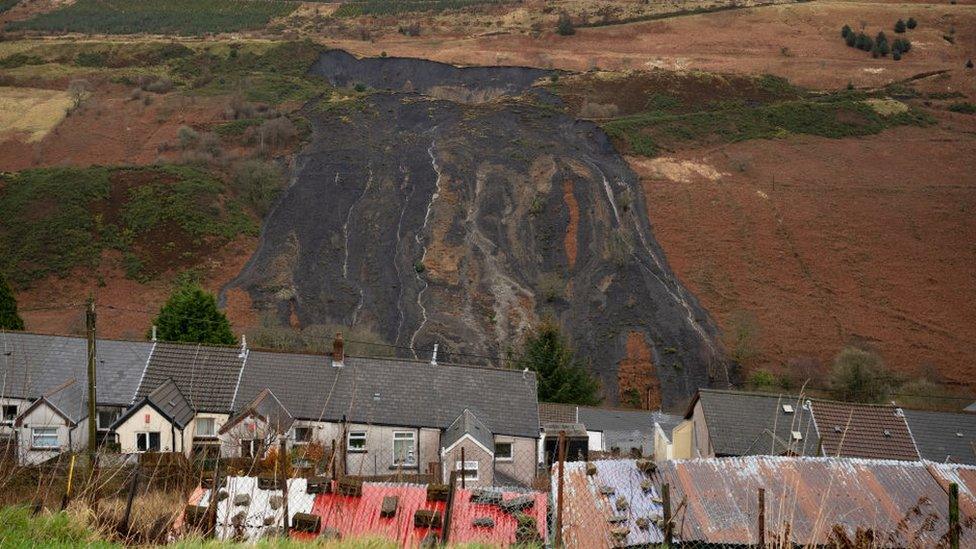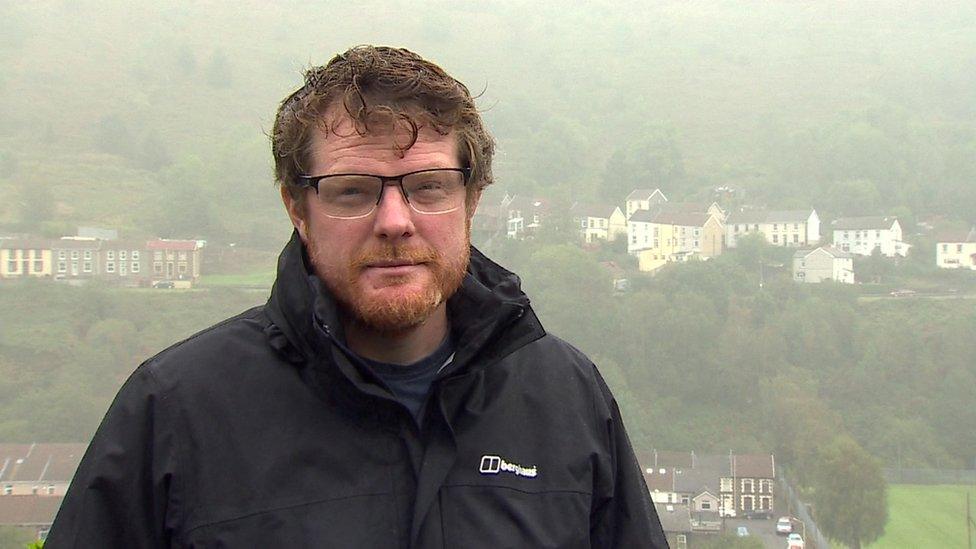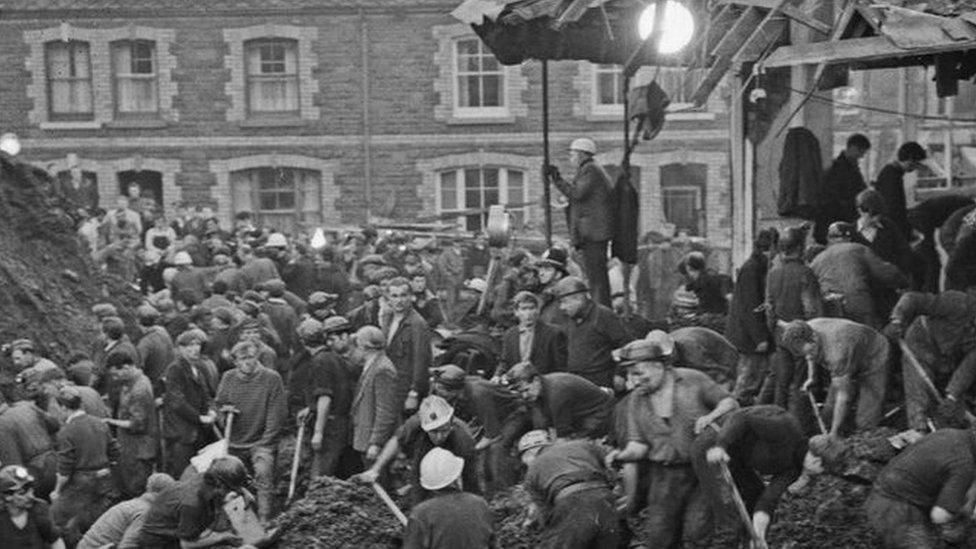Wales coal tips: Was economy prioritised over safety?
- Published

A coal tip campaigner says a document from 2014 suggests the Welsh government at the time was prioritising the economy over safety when funding work on some sites.
Phil Thomas found the document in Rhondda Cynon Taf council archives.
It says that funding to reclaim coal tips was "unlikely" to be provided by ministers unless there was "a business case".
The Welsh government has been asked to comment.
The document identifies the Tylorstown tip which was involved in a landslide in the wake of Storm Dennis in 2020 as one "with stability issues" for which there was "no funding."
The paper was prepared for the council's environmental services scrutiny committee in July 2014 and it details land reclamation work being carried out on some tips at that time.
It said that "the lack of Welsh government funding for future land reclamation is noted."

Phil Thomas has campaigned on coal tip safety since Storm Dennis in 2020
The paper explains that although Welsh government had traditionally funded reclamation work at 100%, officials had informed the council that it was unlikely to fund future reclamation work unless there is a "business case" for it.
The document continues: "This leaves the other sites, some of which have historical stability issues, without potential funding and an increased future liability for the council."
Mr Thomas, who runs a microbrewery, began his campaign on coal tip safety after the Storm Dennis landslide.
He discovered that his family's home in Ynyshir had been designated as "at risk" from a nearby coal tip in the wake of the Aberfan disaster in 1966.
Since then he has campaigned to improve monitoring for tips on private land, as well as greater transparency from Welsh government on the location of higher risk tips. A total of 327 such tips were identified in Wales in 2021, with most in the Rhondda Cynon Taf council area.
'They weren't prioritising safety'
The Welsh government has not disclosed the exact locations of the tips saying that "further quality assurance work and processes need to be completed before we are able to release this data publicly".
It has said that higher risk tips do not necessarily pose an immediate or imminent risk and that more frequent inspections, and maintenance, are carried out on them.
Mr Thomas said: "I think it puts people in a position where they don't have the ability to challenge their [local] authority on what's taking place with any safety issues."
He believed the 2014 document suggested the Welsh Government got its priorities wrong at the time.
"To me it shows that they weren't prioritising the safety of these coal tips and they were prioritising the pieces of land that could be made more economically viable."
In a statement Rhonda Cynon Taf council said: "Storm Dennis created exceptional conditions which contributed to the failure at Tylorstown tip.
"The impact of this unprecedented weather event led to a re-evaluation of tip safety at UK and Welsh government level, in the light of climate change and the potential for increased frequency of such weather events - with funding now available to deal with these legacy issues."
The council also said the 2014 document, which had always been in the public domain, related only to a small number of sites and it had "continually monitored" the safety of its own tips and those of private landowners.

SURVIVING HELMAND: Inspirational stories from those deeply affected by the conflict in Afghanistan
TIP NUMBER 7: The families of Aberfan fight for justice

Related topics
- Published26 October 2021

- Published21 October 2021
